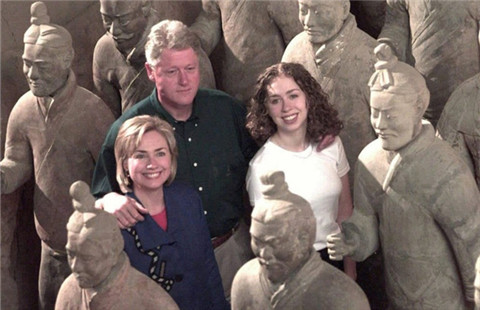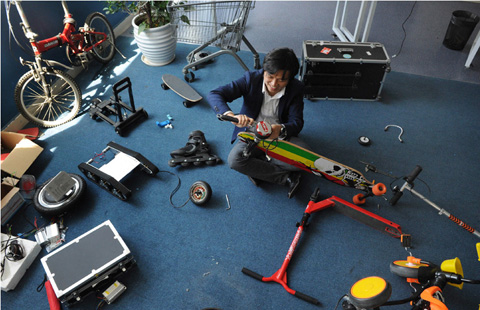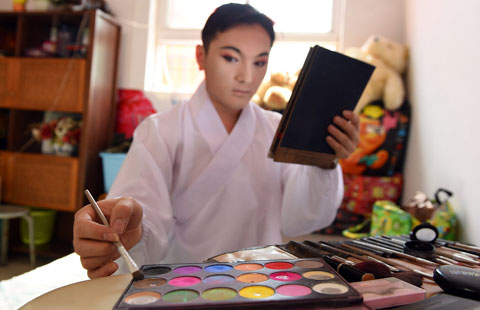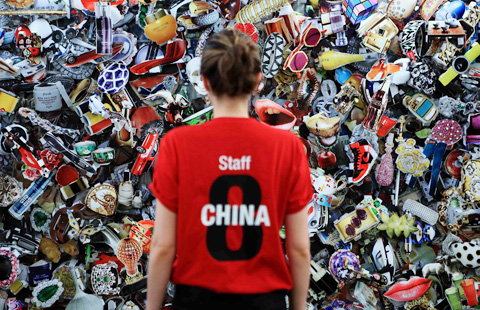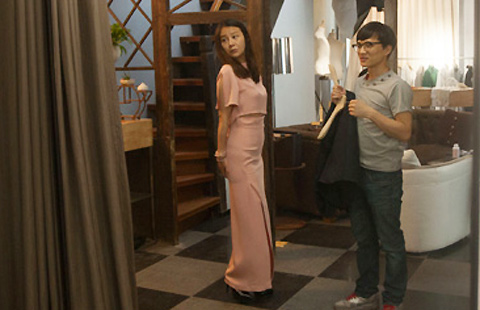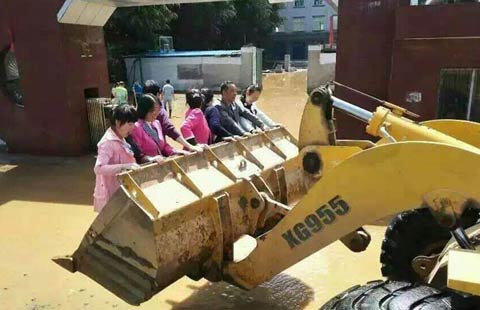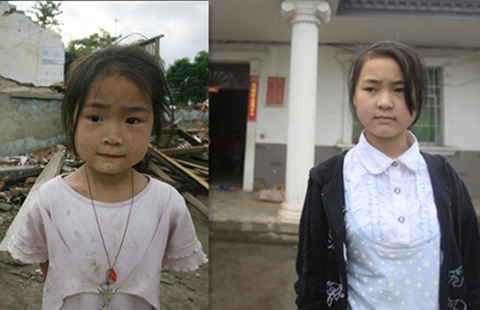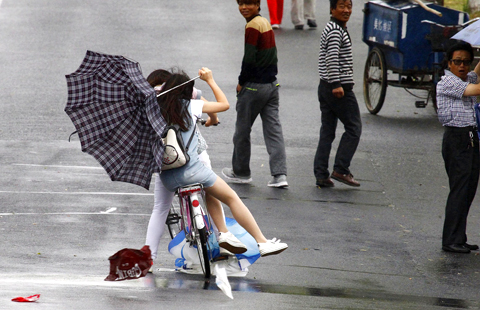
Public encouraged to take part in criminal trials to increase the credibility of court rulings
When Zhang Mou drove into a pedestrian in a street in Zhengzhou, Henan province, in March last year he thought he did the right thing by taking the victim to a nearby hospital.
Legally, Zhang was supposed to report the accident to police at the scene, and he failed to do so. However, the next day he went to the police station to tell them what had happened. He also later gave the victim's family 20,000 yuan ($3,200).
While aware of his duty to report the matter to police, Zhang told officers he had not intended to flee the scene of the accident. So it came as a great shock to him when they said he would be charged with being involved in a hit-and-run accident, a crime with a maximum penalty of life in prison if the victim died.
If it had not been for the two jurors hearing the case with a judge at Zhongyuan District People's Court, that is exactly what would have befallen Zhang. The judge wanted to impose the maximum sentence, given that the victim eventually died of his injuries. However, the two jurors vetoed the hit-and-run charge and overruled the judge. Zhang received a lesser prison sentence of 15 months and was ordered to pay 480,000 yuan in compensation to the victim's family.
The case suggests that jurors may be more kindly disposed to defendants than legal professionals in setting aside strict legal interpretations of the law in favor of a more people-focused approach.
Jurors will soon be seen more often in courts under a pilot program launched at the end of April in the lowest courts and intermediate people's courts in Beijing, Hebei, Heilongjiang, Jiangsu, Fujian, Shandong, Henan, Guangxi, Chongqing and Shaanxi.
The program is aimed at improving the workings of the jury system and justifying court rulings in a society that has seen a rapid increase in legal complaints. It comes after much discussion in the legal profession about how much influence judges should have in court cases.
The Supreme People's Court said it will deliver an interim report to the National People's Congress on the program's progress.
The two-year program is aimed at modifying the existing jury system by encouraging the public to take part in criminal trials, thus helping to increase the credibility of court rulings.
China's jury system - more precisely its system of "people's assessors" - has common roots with civil law systems in countries such as the former Soviet Union and Germany. It is different from that of the United States and Britain because the jurors in China normally sit side by side with a judge, and they are deemed to have the same authority in any rulings.
Since the system in China involves members of the public in the judicial process, the term "jury system" was officially adopted when the system was written into China's first Constitution in 1954. However, specific provisions concerning how a jury works are not written in law books.
The decades-old jury system in China has been questioned because of the common perception that the two jurors could be easily influenced by the trial judge and because the juror selection is not transparent.
Zhou Qiang, president of the Supreme People's Court, said changes must be made to the system, pointing out that one of its shortcomings is that jurors are not selected randomly from the public.
Zhou said courts at all levels should be required to select jurors randomly from all constituents or permanent residents in an administrative area, rather than the present method of choosing from a group of candidates recommended by communities or government organizations. Selected jurors have a five-year tenure.
Limited role
Under the new rule introduced by the Supreme People's Court, a pool of jurors will be chosen by lot from residents age 28 and above who have no criminal record and have graduated high school. But the education criterion is lowered for "highly respected people" in villages and remote areas.
The number of jurors in the pool has to be five times greater than the number of judges in an administration area. Jurors for a trial are selected randomly from the pool several days before the hearing starts.
Under civil and criminal procedure, most cases must heard by at least three people, so a panel of two jurors and one judge is set up for a trial.
Defendants have no right to waive jurors. The law allows one judge to make court rulings in simplified procedure cases without complicated complaints.
According to the Supreme People's Court, about 70 percent of cases at the initial trial stage were tried with jurors last year, when the number of jurors in China was 209,000 and they heard 2.19 million cases.
Cao Wei, a lawyer specializing in civil law in Anqing, Anhui province, said that although jurors participate in a wide range of civil and criminal cases, that doesn't necessarily mean their voices are heard in court. He believes their role in trials is limited.
In a number of cases that he defended, the jurors didn't raise any questions in court and just listened. He couldn't obtain any information about whether the jurors had voted to make a ruling or not from studying the verdict. The jurors' rights and obligations are not specified in Chinese laws. Without statutory authority, jurors' views on cases could easily be influenced by the judge, he added.
Li Shaoping, vice-president of the Supreme People's Court, acknowledged that some jurors didn't fulfill their duties by discussing cases.
Li said the new rule is intended to crack down on jurors not performing their duty by stipulating their rights during trials and requiring them to attend discussions of rulings after a court hearing is adjourned. "The voting procedure is specified in the new rule," he added.
"Under the new regulation, the jurors must give their opinions clearly on a case, which have to be written into the verdict along with their names," he said.
Under the pilot program, courts must have jurors in first-trial cases concerning major public interests and involving sentences of more than 10 years and life sentences. They are encouraged to employ a panel and select more than three jurors to take part in the trials.
Li said the pilot program will also look at ways to allow jurors to avoid service if they are not qualified.
In China, a citizen doesn't have the duty of being a juror. The jury system is based on the assumption that all citizens are willing to participate in the judiciary and willing to serve as jurors for at least one five-year term.
Beijing resident Zhang Renqi, 64, served for 22 years as a juror in the city's Dongcheng District People's Court, and recently resigned. He had been recommended by the company where he worked
Zhang said he was proud of his efforts in one case that showed leniency to a defendant charged with injuring a man in a fight. He and the other juror insisted that the charge be dropped because Spring Festival was approaching, and they believed the defendant should not be detained for causing such a minor injury.
However, the personal injury case in Beijing and the hit-and-run case in Zhengzhou are the type of examples cited by legal professionals who advocate that jurors don't have sufficient knowledge to make rulings under the principles of law.
No authority
To remedy this problem, the modified system will not allow jurors to have the same authority as a judge in court rulings. They will be limited to deciding whether a person is guilty or not and will have no rights when it comes to sentencing.
Chen Weidong, a law professor at Renmin University, said the change borrows from the systems in the United States and Britain, where jurors have no authority in sentencing. "The modification was made to take into account the lack of professional legal knowledge among jurors," he said.
To enable jurors to understand legal rules, a district court in Beijing sends its jurors to the National Judges College to receive three-days' training every year.
He Bing, a law professor at the China University of Political Science and Law in Beijing, said a procedure should be in place to ensure the independence of jurors.
He believes that the changes to the jury system could lead to a breakthrough in democratic progress. "The jury system is a channel to send public opinion into the courtroom," said He, adding that an effective system will help protect judicial independence and will also prevent corruption by imposing checks and balances on judges.
zhang_yi@chinadaily.com.cn
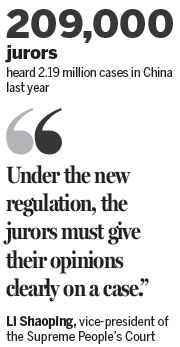

|
Ji Li (second left), a juror, hears evidence in June with a judge and another juror during a trial at Shizhong District People's Court in Zaozhuang, Shandong province. Ji Zhe / for China Daily |
|
New jurors are sworn in at Haiyao District People's Court in Hefei, Anhui province, in December after a series of training sessions aimed at helping them to better understand the country's laws. Xie Chen / for China Daily |
(China Daily 05/14/2015 page5)
